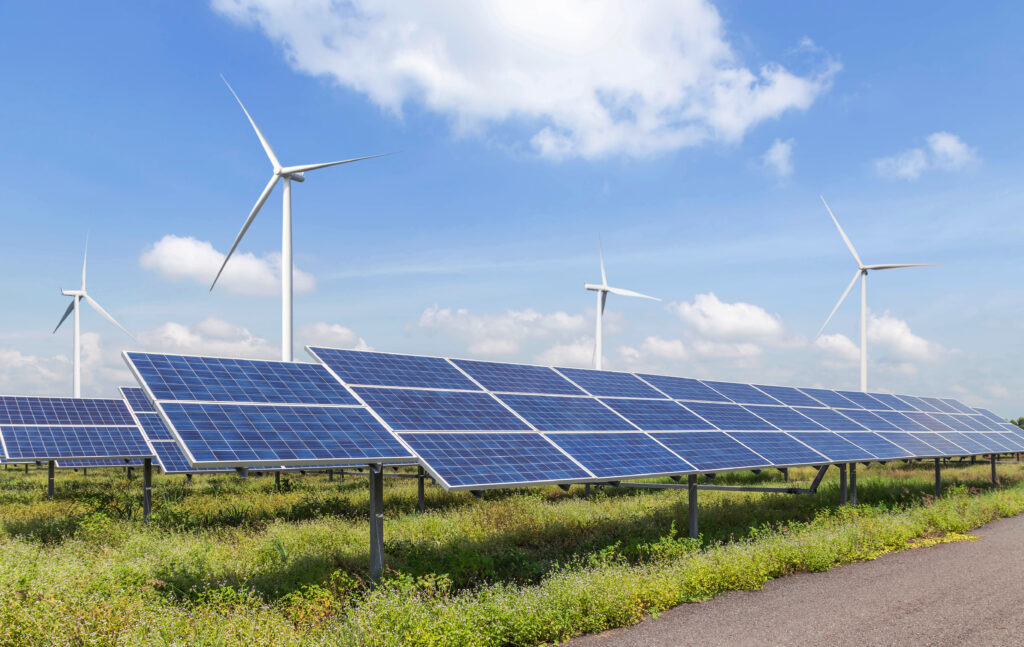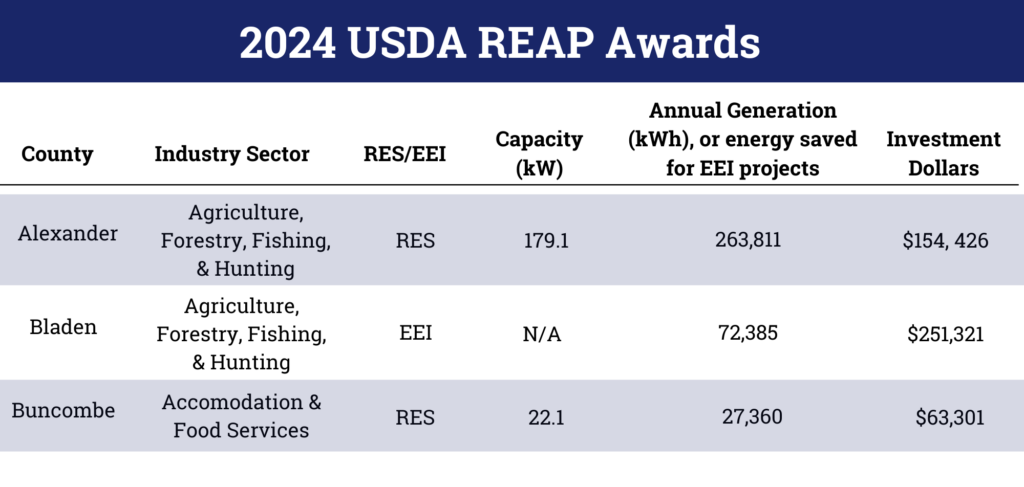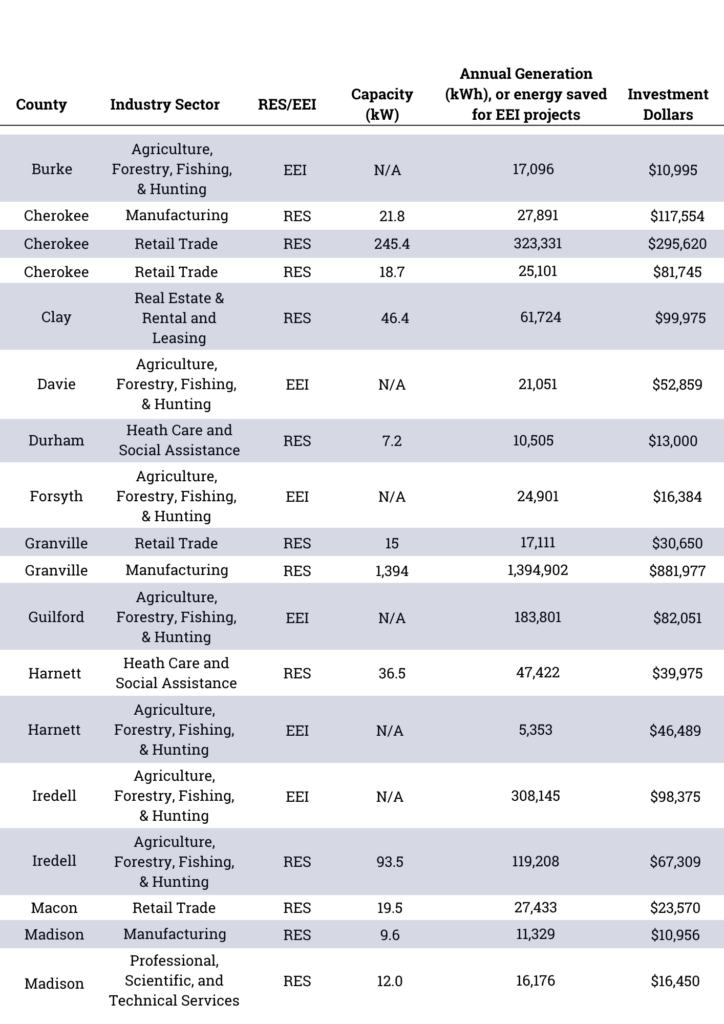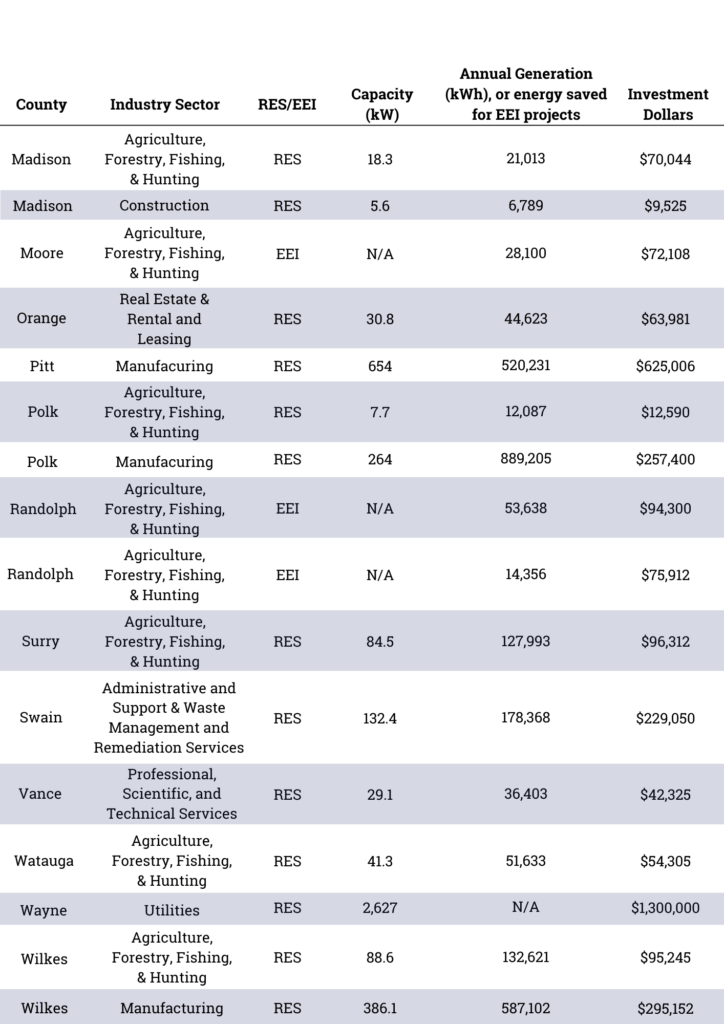Supporting Farmers and Rural Small Businesses – USDA’s Rural Energy for America Program
The Rural Energy for America Program (REAP), administered by the United States Department of Agriculture (USDA), has a long history of providing rural small businesses and agricultural producers with guaranteed loan financing and grant funding to make energy efficiency improvements or to implement on-site renewable energy systems.

First introduced in the Farm Security and Rural Investment Act of 2002, the program serves as a pathway to increase domestic energy independence and allows small businesses and agricultural producers to harness energy efficiency at an affordable cost. Under this program, loan guarantees on loans up to 80 percent, grants for up to 50 percent, and combined grant and loan guarantee funding up to 75 percent are available for total eligible project costs. The grant terms for renewable energy systems outline a $2,500 minimum and $1 million maximum. For energy efficiency grants, there is a $1,500 minimum and a $500,000 maximum. Funding on this scale has resulted in influential energy transitions for many small businesses and agricultural producers across the United States.
Eligible energy efficiency improvement projects include:
- High efficiency heating, ventilation and air conditioning systems (HVAC)
- Insulation
- Lighting
- Cooling or refrigeration units
- Doors and windows
- Electric, solar or gravity pumps for sprinkler pivots
- Switching from a diesel to electric irrigation motor
- Replacement of energy-inefficient equipment
Eligible renewable energy systems include:
- Biomass (for example: biodiesel and ethanol, anaerobic digesters, and solid fuels)
- Geothermal for electric generation or direct use
- Hydropower below 30 megawatts
- Hydrogen
- Small and large wind generation
- Small and large solar generation
- Ocean (tidal, current, thermal) generation
USDA REAP also includes a Technical Assistance Grant (TAG) program that provides funding to entities to directly assist REAP applicants to assure that applications for either Energy Efficiency Improvement (EEI) or Renewable Energy Development Assistance (REDA) funding contain required project technical, financial, environmental and administrative information. The REAP TAG program also helps applicants with System Award Management (SAM) and Unique Entity Identifier (UEI) registrations. In 2024, a total of $16 million was available in funding for the REAP TAG program.
Through December 2024, the USDA funded eligible projects with up to a 50 percent cost share; 25 percent through Farm Bill funding and the other 25 percent added by the Inflation Reduction Act (IRA) in 2023. Due to an overwhelming number of applications, the USDA Secretary has paused the IRA funding portion. For the time being, applications are being accepted for the 25 percent Farm Bill funding. Current Farm Bill applications will be accepted through March 31, 2025. Following the March 2025 application deadline, the next window for applications will open on July 1, 2025, with the next application submission deadline being September 30, 2025. It is uncertain at this time if the federal share of grant funding will return to 50 percent or remain at 25 percent.
In North Carolina, many small businesses and agricultural producers have benefited from REAP funding. In fiscal year (FY) 2023, a total of 53 entities were awarded funding after applying to REAP. In FY 2024, 37 entities were selected to receive grant funding after submitting a REAP application.
The table below shows proposed project details for FY 2024 for entities in North Carolina that were awarded funding through REAP. The information includes what county the project was in, which industry sector the entity belongs to, the type of project proposed – either Energy Efficiency Improvements (EEI) or Renewable Energy Systems (RES), capacity of the project in kW, annual generation in kWh or energy saved as a result, and the total investment amount.



NCCETC has received two REAP funding awards starting in 2023. The first award covers the period from mid-2023 through May 2025 and directs the Center to offer renewable energy technical assistance to approximately 25 agricultural producers and rural small businesses. This work is funded by the USDA’s REDA program. The Center’s second REAP funding award provides REAP application assistance to approximately ten agricultural producers and rural small businesses under the REAP TAG program and covers a three-year period through September 2026. The assistance provided by the NCCETC is at no cost to eligible REAP applicants.
Over the past 18 months, the CPIE team has completed renewable energy assessments and/or REAP application support to 23 small businesses and agricultural producers under the REDA and TAG programs. Currently, the support provided to REAP applicants has resulted in three project funding awards, with another two undergoing their final review by the USDA REAP application review team. Agricultural producers and rural small businesses continue to contact the NCCETC for REAP technical and application assistance.
For more information or to seek technical assistance with a REAP application, contact Art Samberg at asamber@ncsu.edu.